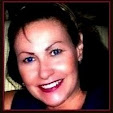Sponsored by:
The EPA Aging Initiative, Generations United, and the Rachel Carson Council, Inc.
On May 27, 2007, the world will celebrate the 100th anniversary of Rachel Carson’s life. She was an American biologist who cared deeply about the natural world around her, and whose work has the potential to dramatically change the way we live - if we heed her message.
After receiving a Masters Degree in biology from Johns Hopkins, Ms. Carson worked for the U.S. Fish and Wildlife Service as a biologist and writer. She also lectured, wrote articles for magazines as well as publications for the Fish and Wildlife Service, where she eventually rose to become their editor-in-chief. In 1940 she wrote her first book, Under the Sea Wind, through which she shared with the world her passion for the ocean.
While doing oceanic research and journaling the Maine coast, Rachel was so consumed by the magic and majesty of the ocean and its myriad forms of life that she wrote her second book The Sea Around Us. In it, she expressed, not only her love and knowledge of marine life, but also her concerns: warning of the danger of indiscriminate dumping, and speaking out against burying hazardous materials into the ocean. The book soon became a best seller, due both to Carson’s clarity of thought and her lyrical writing style.With the success of this book, she retired from FWS and devoted herself to being a full-time author. Her third book, The Edge of the Sea also became a best seller.
Perhaps her most important and controversial book was Silent Spring. It focuses on the deadly impact on the ecosystem resulting from the widespread, indiscriminate use of pesticides. One example she cited was DDT’s devastating effect on bird populations. In this book, published in 1962, she spoke of her concern, that if the conditions of widespread indiscriminate pesticide use continued, one effect could be a "spring without [bird] voices." (Rachel Carson, Silent Spring, p. 2) With the publication of this book she became a prominent environmental advocate, the mother of the modern environmental movement.
In The Sense of Wonder (written in the 1950s and published in a magazine in 1956), Carson used lyrical passages about the beauty of nature and the joy of helping children develop a sense of its wonder, of curiosity, and love of nature. It was later published posthumously, as a book, and illustrated with wonderful nature photography. In it, Ms. Carson wrote that she would endow every child with "a sense of wonder so indestructible that it would last throughout life." However, "if a child is to keep alive his inborn sense of wonder, he needs the companionship of at least one adult who can share it, rediscovering with him the joy, excitement, and mystery of the world we live in."
To honor this amazing woman Rachel Carson, the EPA, Generations United, and the Rachel Carson Council, Inc., announce a photo, essay, and poetry contest "that best expresses the Sense of Wonder that you feel for the sea, the night sky, forests, birds, wildlife, and all that is beautiful to your eyes." We want you to share this love of nature with a child and others around you. When we teach our eyes and ears and senses to focus on the wonders of nature, we open ourselves to the wonders around us.
• Submissions are due by Friday, June 15, 2007.
• The finalists will be selected by a panel of judges.
• Then the public will be asked to vote for their favorites in each category: photography, essay, and poetry.
Entries must be joint projects involving a person under age 18 and a person age 50 or older.
The winners will be posted on the websites of: EPA, Generations United, and the Rachel Carson Council, Inc.:
http://www.epa.gov/aging
http://www.gu.org
http://members.aol.com/rccouncil/ourpage/
Please send your poetry or essay to
US EPA
Attn: Kathy Sykes, OCHPEE,
1200 Pennsylvania Ave NW, Room 2512 AR N,
Washington, DC 20460
Please send your photo entry to
Generations United
Attn: Rachel Carson Contest
1333 H Street, NW, Suite 500W
Washington, DC 20005
If you have further questions please contact Kathy Sykes at (202) 564-3651.





